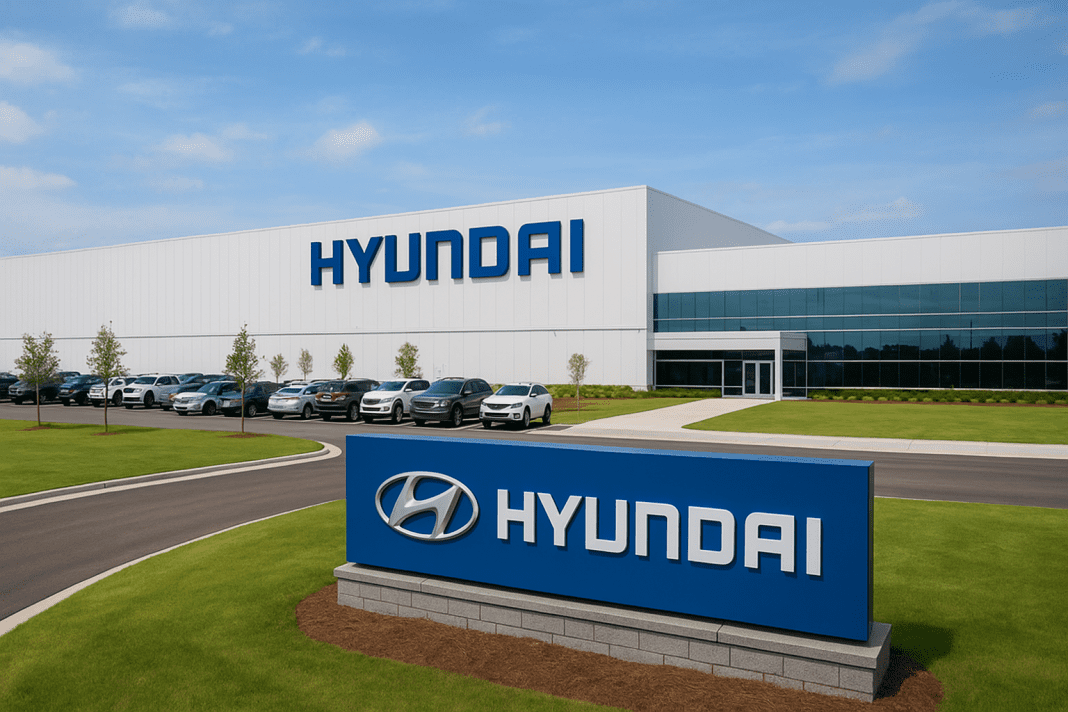Hyundai Motor Group has confirmed that it will move ahead with its $2.7 billion expansion plan at its automotive complex in Georgia. The announcement comes only weeks after a large immigration raid disrupted operations at the same site.
Expansion Plan at Georgia Plant
The Georgia complex, located west of Savannah in Ellabell, is already one of Hyundai’s key production centers in the United States. The company said the new investment will increase the plant’s annual production capacity by 200,000 vehicles over the next three years. This would bring total output at the site to about 500,000 vehicles a year once the expansion is complete.
Hyundai had first announced plans to enlarge the Georgia facility earlier this year during the plant’s grand opening. The move is part of a larger investment program that aims to strengthen the company’s role in the U.S. market. Despite delays caused by the recent immigration raid, Hyundai has now reiterated that the expansion will go ahead.
U.S. veteran detained by immigration officers in California over identity despite valid ID
The company emphasized that the expanded plant will build ten models of electric and hybrid vehicles in Georgia. The plant currently assembles only two models, and it will eventually produce a mid-sized pickup truck, a vital class of vehicle in the U.S. market.
Scale of Investment and Employment in Georgia
The newly confirmed $2.7 billion will add to Hyundai’s overall U.S. investment, raising the company’s spending at the Georgia site to $10.3 billion. This does not include the $4.3 billion being spent with a joint-venture partner to build a battery plant at the same location.
According to official details, Hyundai and its affiliates currently employ more than 3,100 people at the Ellabell site. The company has pledged to increase that workforce significantly, aiming for at least 8,500 employees by the end of 2031.
State and local governments have played a role in supporting the project. They have offered $2.1 billion in tax breaks and other incentives to encourage Hyundai to continue its large-scale expansion in Georgia.
Hyundai Marine Faces Consequences for Fireworks Event During Jeju Air Tragedy
This investment represents one of the most significant single boosts to the U.S. automotive industry by a foreign automaker in recent years. The Ellabell site will serve as the center of Hyundai’s domestic production increase, which aligns with the company’s goal of raising its worldwide production capacity by over one million vehicles annually.
Beyond Georgia, Hyundai has also announced plans to increase capacity at its facilities in India and South Korea, along with additional production arrangements in Saudi Arabia, Vietnam, and North Africa.
Impact of Immigration Raid
The confirmation of this expansion comes in the shadow of a recent immigration raid at the same site. U.S. authorities detained more than 300 workers during the operation, most of whom were South Korean nationals. The raid created tension between the United States and South Korea, leading to a brief diplomatic dispute.
The disruption raised questions about the company’s investments in the U.S., with concerns that such events could discourage future commitments. However, Hyundai has underlined that the raid will not alter its long-term strategic plans for the American market.
The immigration raid has already delayed the opening of the new battery plant connected to the Georgia complex. Company officials said the battery facility, which they are building with LG Energy Solution, will now open in the first half of 2026. They had originally expected to launch it sooner.
UCCS directive tightens rules on release of personal information to immigration enforcement agencies
Hyundai has continued to stress its commitment to the U.S. market and to Georgia in particular, despite the disruption. The company has described its investments as a crucial part of its long-term strategy to localize production.
The expansion in Georgia also fits into Hyundai’s larger global targets. The company said it aims to produce 5.6 million vehicles annually worldwide by 2030, with 60% of those vehicles being electric or hybrid models. A portion of the Georgia plant’s expanded output will contribute to this target, focusing especially on sales in North America, South Korea, and Europe.
